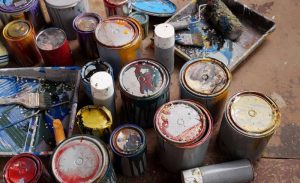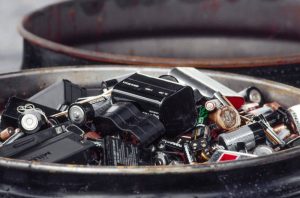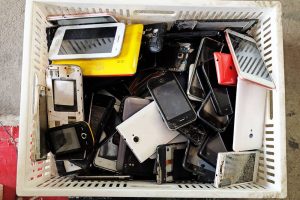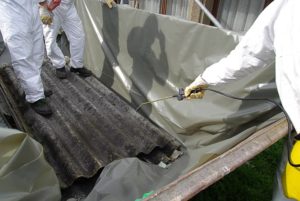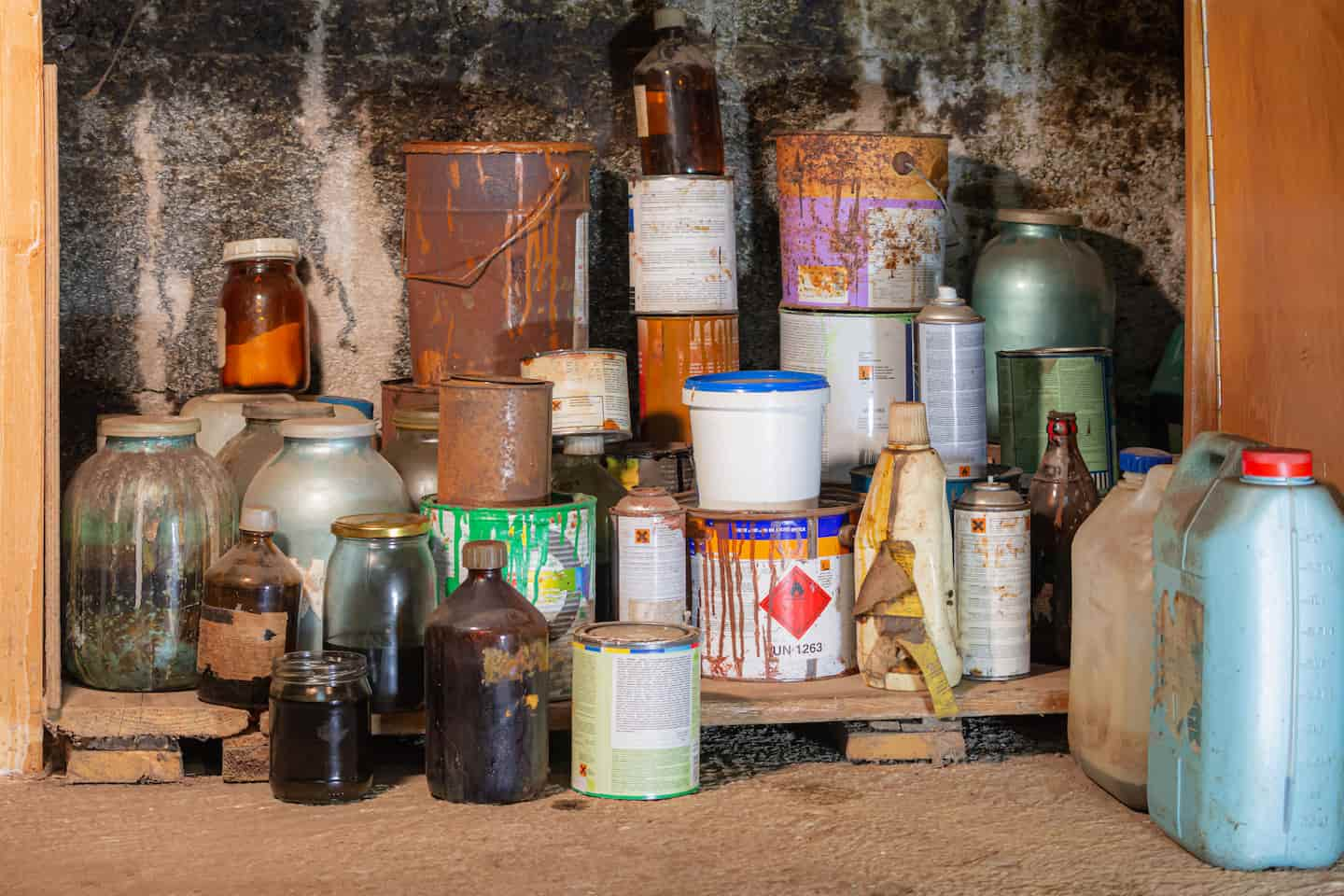
When it comes to household clean-ups, many people ask the same question: how do you dispose of hazardous waste? The answer is simple: never place it in your general rubbish bin or a skip bin. Hazardous items must be handled separately through council collection programs or approved drop-off centres to keep your family, community, and environment safe.
At Backyard Bins, we’re proud to be a family-run, Perth-owned business that puts our customers first. Part of our job is helping you understand what can and can’t go into a skip bin, and pointing you towards safe, responsible ways to handle the rest. Rest assured that when you hire a bin from us, we’ll take care of the clean-up while keeping it clean and green.
Quick Summary
- Hazardous waste includes items like paint, solvents, batteries, e-waste, chemicals, and asbestos.
- These items must never be placed in a skip bin.
- The safest way to dispose of hazardous waste is through government or council collection programs.
- In WA, the Household Hazardous Waste (HHW) Program provides free drop-off for many dangerous items.
- Backyard Bins is here to guide you. We’ll manage your general waste and help you do the right thing with hazardous waste.
What Counts as Hazardous Household Waste?
Not everything lying around the house can safely go into a skip bin. Some items are classified as hazardous because they pose health, fire, or environmental risks if thrown in with general waste. Knowing the difference is the first step in handling your rubbish responsibly.
Paints, Solvents, and Chemicals
Old tins of paint, varnish, thinners, and cleaning agents are some of the most common hazardous items found in sheds and garages. These products can leak harmful chemicals into the soil and waterways if not disposed of correctly. For more guidance, see our tips on how to safely dispose of paints and solvents.
Batteries (Car and Household)
Batteries contain heavy metals that can catch fire or contaminate the environment if dumped in landfill. This includes household AA batteries, car batteries, and rechargeable lithium-ion batteries. We’ve covered this in detail in our car battery disposal guide.
Electronic Waste (E-Waste)
Old computers, TVs, phones, and chargers are packed with toxic materials, yet they’re often left in cupboards or garages. E-waste should always go to a proper recycling point. Learn more in our electronic waste guide.
Asbestos, Oils, Gas Cylinders, and Sharps
Other hazardous household items include asbestos sheeting, motor oil, gas bottles, needles, and sharps. These require specialist disposal by licensed professionals, and must never be placed in your skip bin.
If you’re unsure about what can and can’t go in your bin, see our guide on what you can put in a skip bin.
Why Hazardous Waste Needs Special Disposal
Placing hazardous waste in the wrong bin isn’t just against the rules. It can be dangerous. Whether it’s to your health, the environment, or even your wallet, the risks are real.
Health Risks
C hemicals, asbestos, and even old batteries can release harmful toxins. Exposure may cause burns, poisoning, or respiratory problems. These dangers are why hazardous waste must be kept separate from general rubbish.
Environmental Damage
Hazardous materials can leach into soil and waterways, poisoning wildlife and damaging local ecosystems. Dumping them into landfill undoes community recycling efforts and creates long-term harm. For more on this issue, see our post on the negative effects of improper rubbish removal.
Fire and Explosion Hazards
Items like aerosols, gas bottles, and lithium batteries are highly flammable. If punctured or exposed to heat, they can ignite or explode, putting waste workers and the public at risk.
Legal Penalties
In Perth, councils can issue fines if you are found disposing of hazardous materials incorrectly. That’s why we make it clear to our customers what can and cannot go in our bins. Our commitment to health, safety, and the environment is part of every hire.
How Do You Dispose of Hazardous Waste Safely?
The good news is that there are safe, simple options available across Perth and WA for getting rid of hazardous household waste. By following the right steps, you’ll protect your family, avoid fines, and help the environment.
Use Government Collection Centres
In Western Australia, the Household Hazardous Waste (HHW) Program provides free drop-off points for many dangerous items, including acids, aerosols, batteries, paint, pesticides, and fluorescent lamps. You can find your nearest collection location through WALGA’s HHW Program.
Follow Council Collection Days
Many councils run dedicated collection days for e-waste, batteries, and chemicals. Keep an eye on your local waste calendar to make sure you don’t miss these opportunities.
Return and Recycle Programs
- Paint: Take leftover paint to Paintback collection centres.
- Gas bottles: Swap or return bottles at Bunnings, service stations, or other exchange points.
- Batteries: Drop them in dedicated bins at shopping centres, libraries, and waste depots.
- E-waste: Recycle old electronics through council or retail collection stations.
Seek Licensed Professionals
Asbestos, sharps, and highly toxic chemicals must only be removed by licensed professionals. Never try to handle these items yourself.
Backyard Bins’ Role in Keeping Perth Clean and Green
While hazardous waste can’t go in our skip bins, we’re here to help you handle the rest of your clean-up. From garden waste to renovation debris, our bins make the process quick, safe, and environmentally responsible.
For other waste types, explore:
At Backyard Bins, fairness and honesty guide everything we do. We provide clear communication, flexible hire, and on-time service. Book your skip bin today and we’ll take care of the waste you can place in it, while pointing you in the right direction for hazardous items.
